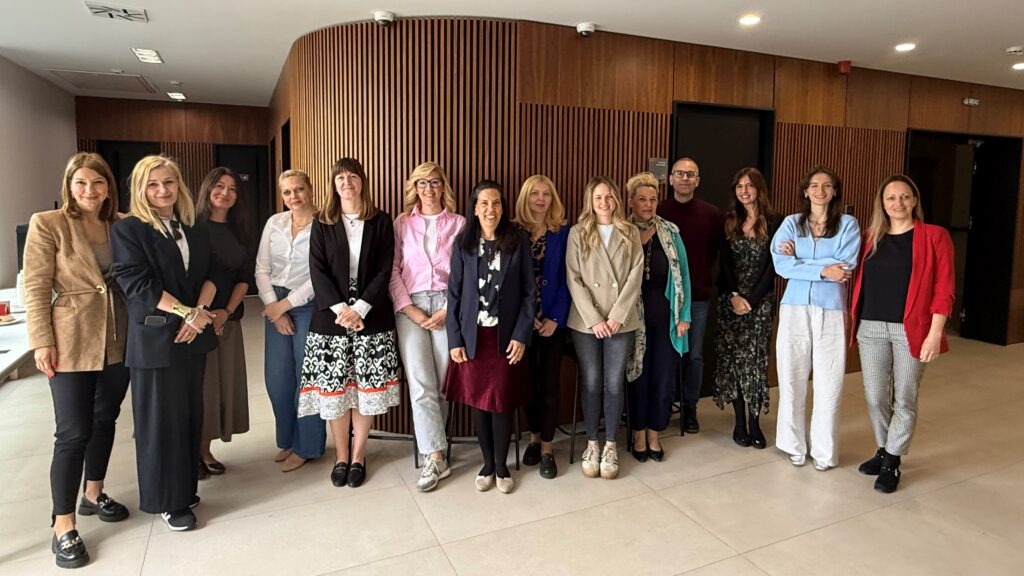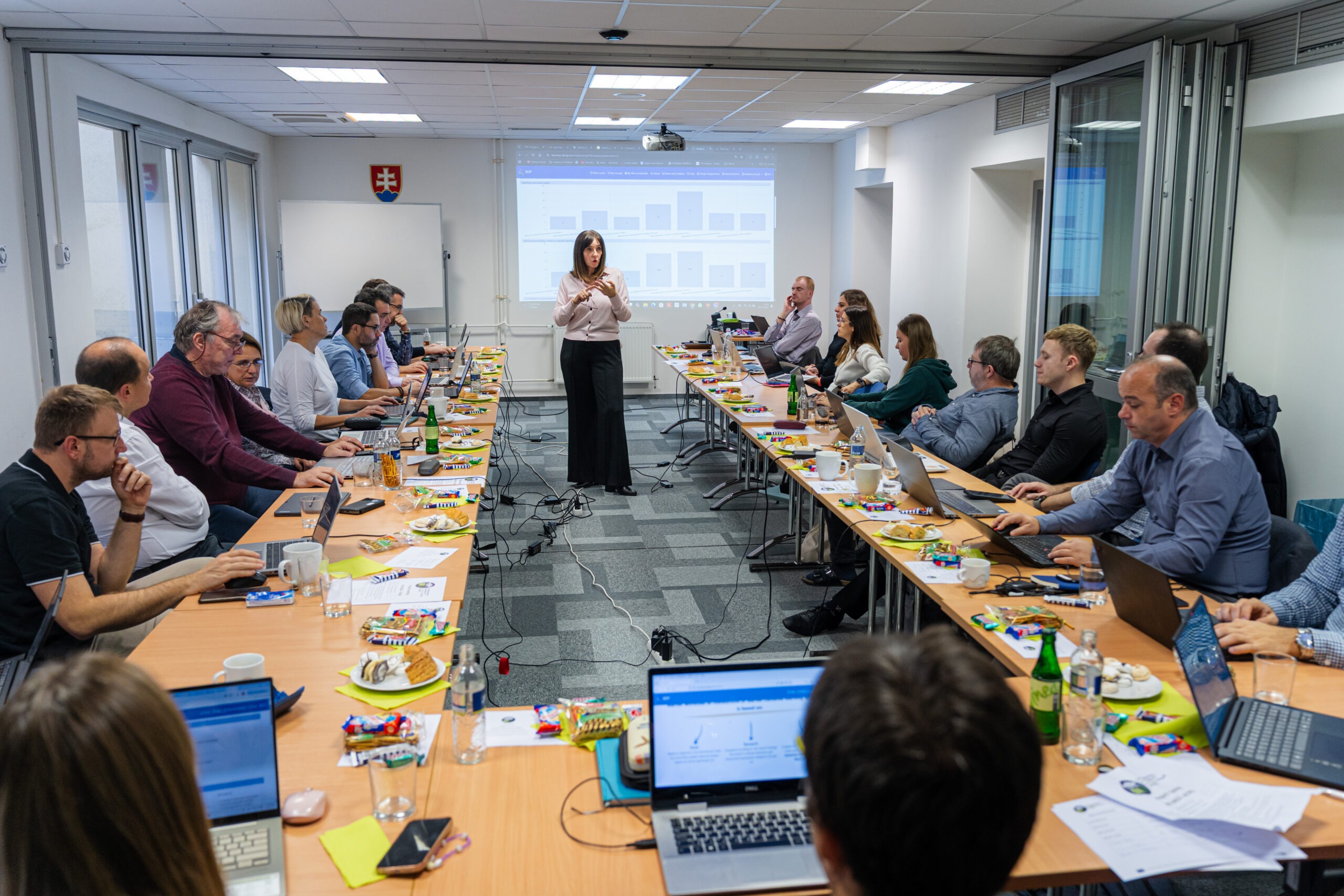Within the Erasmus+ project “Strengthening the ecosystem for sustainable student mobility” (SuMoS), a workshop on sustainable student mobility was held on Friday, 30th May, 2025, at the Faculty of Organizational Sciences. Participants in this workshop included vice-deans and international relations officers, Erasmus+, and ECTS coordinators from the University of Arts in Belgrade, Faculty of Applied Arts, the Rectorate of the University of Belgrade, and its members: Faculty of Political Sciences, Faculty of Philosophy, Faculty of Veterinary Medicine, Faculty of Mathematics, Faculty of Economics and Business, School of Electrical Engineering, and Faculty of Mechanical Engineering.
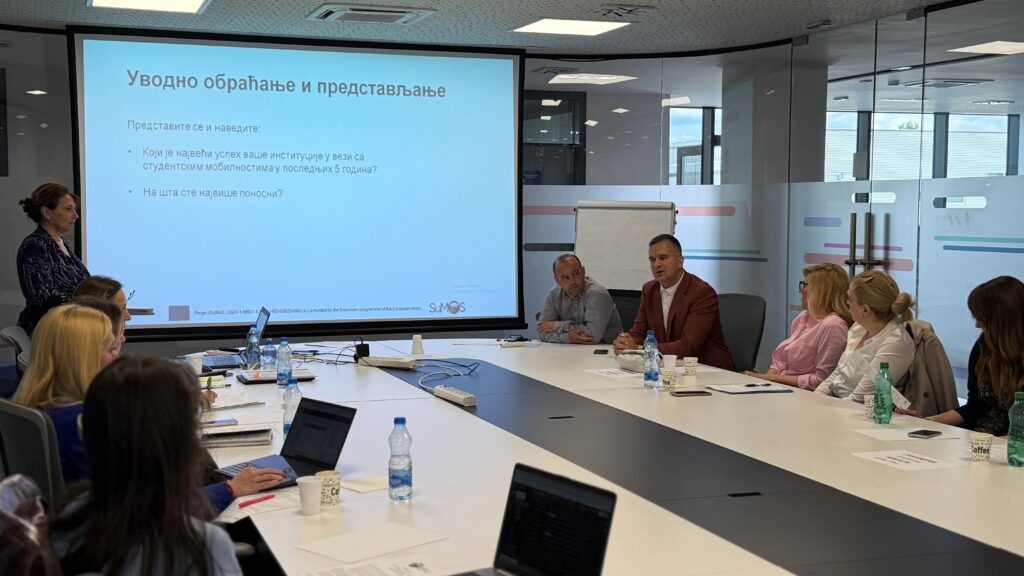
The workshop was opened and the first part was led by Prof. Dr. Sandra Jednak, Vice-Dean for International Cooperation and Finance, as well as the SuMoS project leader. Professor Jednak presented the project, its five work packages, and past and future activities. Speeches were also given by Prof. Dr. Dušan Savić, Vice-Dean for Undergraduate Studies, and Prof. Dr. Dušan Barać, Vice-Dean for Corporate Affairs and Innovations, who are also project team members responsible for mobility recognition and process digitalization. They emphasized the importance of two-way communication and feedback from staff involved in student exchange.
The second part of the program was led by Bojana Ivanović Bovan, a project team member and international relations officer at the Faculty of Organizational Sciences. She introduced participants to the Institutional Student Mobility Ecosystem (ISME) scheme, focusing on the processes that constitute it, which the project team identified through a review of professional and scientific literature and strategic documents. All workshop participants discussed the proposed model, and together conducted a SWOT analysis of the student mobility ecosystem. Numerous strengths and weaknesses were highlighted. Special attention and discussion were dedicated to improving the system, with an emphasis on the need for digitalization of processes and reducing administration.
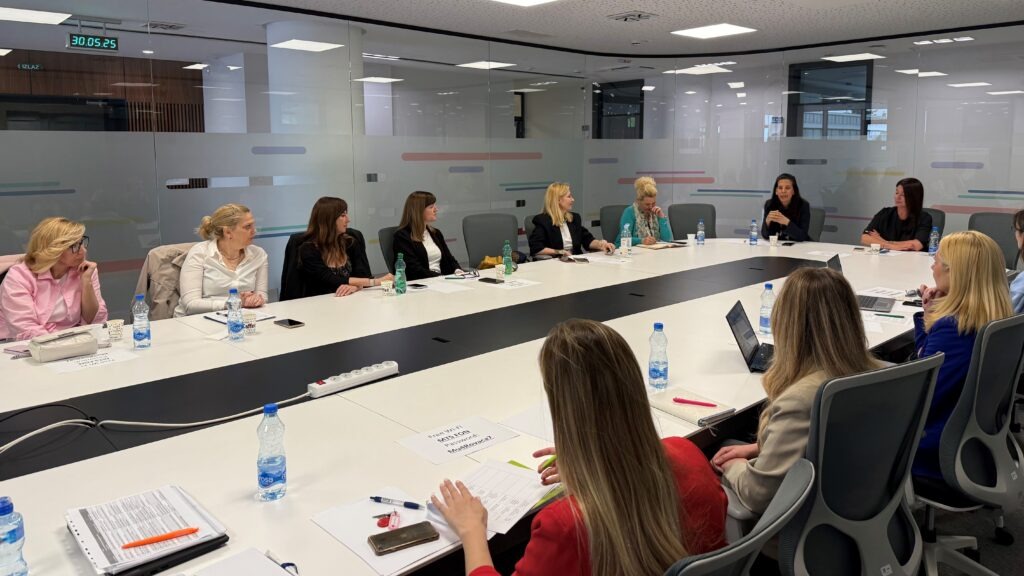
During the workshop, parts of survey conducted among the student population were also presented, including those with and without mobility experience. The research showed that students’ motivational factors for participating in exchange programs were mostly personal (personal development, gaining new experiences), while barriers included incompatibility of study programs, insufficient student awareness, complicated application procedures, and insufficient financial support.
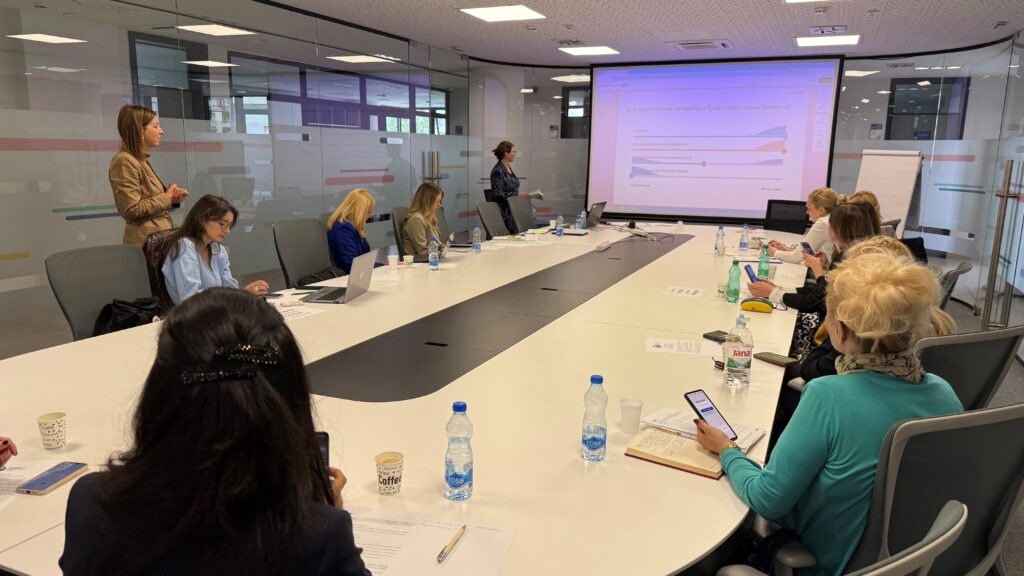
This workshop is one of five held within the SuMoS project at all partner institutions, and its outcomes will be used as an input for improving the initial Institutional Student Mobility Ecosystem (ISME).
